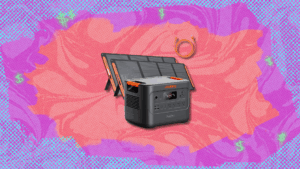
There’s a lot to love about being a small business owner, but we’d be lying if we said it didn’t come with its fair share of challenges, especially around tax season. From figuring out how to manage quarterly taxes to actually paying what you owe the IRS, the learning curve can be steep.
The process isn’t all bad, though. For example, there are certain tax breaks and deductions that are afforded to small business owners and self-employed individuals that regular employees don’t get to take advantage of.
If you don’t already know about the tax deductions that come with being a small business owner, you’ll want to read on. Here are twenty major tax deductions for small business owners that may surprise you:
Advertising fees
The costs associated with advertising your business are completely tax deductible. This can include things like getting business cards printed, launching a new website, social media campaigns, and even sponsoring a local event.
Bank fees
Bank fees such as PayPal transaction fees, wire transfer fees, and any service charges are 100 percent tax deductible. Keep in mind this only accounts for business banking accounts and doesn’t work for personal bank accounts or credit cards.
Business meals
Business meals are 50% deductible as long as they aren’t considered lavish or over-the-top. Keep in mind that meals for employees, like pizza Fridays, are considered 100% tax deductible.
Car fees
If you have a vehicle that you use entirely for business, all costs associated are tax deductible. If you use your car for personal and business use, you can still deduct certain costs, but only the costs associated with business use.
Charitable donations
You cannot deduct charitable donations as a business expense, but it’s possible to deduct these donations on your personal income tax return as long as they were made to a qualified charitable organization.
Childcare and dependent care
If you have children under the age of 13 or a dependent who is mentally or physically unable to care for themselves, you might be eligible to deduct up to a certain amount of what you spend on childcare and dependent care while working.
Credit card interest
If you’ve opened up a credit card specifically for your business, any credit card interest is completely tax deductible. This also applies to other interest payments (such as a business loan) as long as you can prove that you intend to pay back the loan in full.
Depreciation fees
Depreciation fees are considered the cost associated with normal wear and tear on business-related machinery and tools. Depending on the cost of the items, you can deduct the entire cost of the item in one year or spread it out over several years.
Education
Things like tuition, books, subscriptions to trade-related publications, and workshops to increase your skill set and expertise are all tax deductible as long as they relate back to your immediate field and business.
Employee benefits
Being a good employer means treating your employees well — and you can actually deduct most employee benefits. Things like employee health benefits, achievement awards, and educational assistance are all tax deductions for small business owners.
Freelance labor
If you haven’t required full-time employees yet but still enlist the help of freelancers, the fees associated with freelance labor are also a tax-deductible cost.
Health savings account
Did you know that a health savings account is tax deductible for small business owners? You can use your health savings account up until retirement for things like doctor visits, gym memberships, and even massages.
Home office supplies
Home office supplies — from your laptop to your pens and pencils — are all considered tax deductible for small business owners and solopreneurs.
Internet and phone bills
Business-related internet and phone use is 100% tax deductible, but keep in mind that if you use your phone for both personal and business, only the dollar amount used specifically for business can be deducted.
Legal fees
Legal fees and services required for conducting your business are tax deductible. This also applies to accounting and bookkeeping services required to keep your small business running.
Rent
It doesn’t matter if you rent an office space or you run your small business from your apartment, rent is considered tax deductible. Keep in mind that you cannot deduct the entire amount of your apartment if you work from home but rather the percentage that you use for business.
Retirement contributions
You receive a dollar-for-dollar tax write-off for every single dollar you contribute to your retirement account (up to a total of $77,000). You can also set up an additional pension plan through your business which will allow you to contribute even more.
Tax preparation fees
Small business owners should always work with an accountant at tax season to ensure everything is properly filed. Thankfully any tax preparation fees and services are also tax deductible.
Travel expenses
If travel is part of your business requirements, you’ll want to save as many receipts as possible as there are many deductions available for business travel. As long as your trip is necessary for business, you can deduct everything from plane tickets and hotel fees to laundry and dry cleaning, tips, and parking fees.
Utility fees
Utility fees such as heat and hot water are also tax-deductible expenses. If your business operates out of your home, the entire fee isn’t deductible but rather the percentage you use while you’re actively working.







